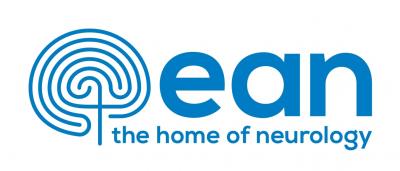The research found that mortality rates for epilepsy-related deaths did not decrease between 2009 (6.8 per 100,000) and 2015 (9.1 per 100,000), despite advances in treatment during this time

Credit: EAN
(Vienna, Monday, 25 May, 2020) A new study presented today at the European Academy of Neurology (EAN) Virtual Congress shows the burden of potentially avoidable epilepsy-related deaths in young adults remains large, with those aged between 16 and 24 having a six-fold increased risk of epilepsy-related death.
The research found that mortality rates for epilepsy-related deaths did not decrease between 2009 (6.8 per 100,000) and 2015 (9.1 per 100,000), despite advances in treatment during this time. Young adult patients in their early 20s and 30s were found to be at the highest risk, with 78% of epilepsy-related deaths under the age of 55 years classified as potentially avoidable.
The study is being conducted in Scotland and looks to identify the burden of epilepsy-related deaths, what proportion of these are potentially avoidable, and ascertain the factors that may put patients at an increased risk.
The researchers collected anonymous data from healthcare settings for patients that died between 2009 and 2016, identifying 2,149 epilepsy-related deaths. 60% of these patients (1,276) had one or more seizure-related or epilepsy-related hospital admission in the years prior to death, yet less than a quarter (516) were seen in a neurology clinic. The most common causes of death within the study were sudden unexpected death in epilepsy (SUDEP), aspiration pneumonia, cardiac arrest, congenital malformation and alcohol-related deaths. The data will be compared with data from living patients with epilepsy of the same age and gender. These comparisons will focus on the patients’ epilepsy type, socio-economic class, standards of care received, and the presence of additional disorders, such as depression.
Dr Gashirai Mbizvo, completing this Scottish Epilepsy Deaths Study (SEDS) at The University of Edinburgh, comments that “Epilepsy patients are at a higher risk of early death than the general population, but reasons for this are unclear. We hope that we can use this data to learn lessons and reduce the burden of epilepsy-related deaths in the future, many of which we believe are likely to be avoidable. Highlighting such risk factors, and identifying those that could be prevented, might lead to changes in epilepsy care and, ultimately, fewer epilepsy-related deaths in the future.”
Epilepsy is a chronic noncommunicable disease of the brain that affects around 50 million people globally, making it one of the most common neurological diseases worldwide. It can cause seizures or periods of confusion in patients, which can either occur randomly or from triggers, such as a lack of sleep, stress or drinking alcohol. In many cases, people with epilepsy suffer from negative stigma and discrimination.
###
Notes to Editors:
Press Enquiries:
For further information or to speak to an expert, please contact Luke Paskins or Sean Deans at [email protected] or call +44 (0) 1444 811099.
About the Expert:
Dr Gashirai Mbizvo is a Clinical Research Fellow at The University of Edinburgh’s Muir Maxwell Epilepsy Centre, which is part of the Centre for Clinical Brain Sciences. He is currently completing a PhD funded by Epilepsy Research UK, and The Juliet Bergqvist Memorial Fund.
EAN – The Home of Neurology:
The European Academy of Neurology (EAN) is Europe’s home of neurology. Founded in 2014, through the merger of two European neurological societies, EAN represents the interests of more than 45,000 individual members and 47 national institutional members from across the continent.
In the interest of the health, safety and well-being of all registered attendees, patients and families, as well as the general public, EAN decided to cancel all in-person attendance and face-to-face activities at the Annual Congress, of May 23-26, 2020 in Paris. The decision was taken due to the COVID-19 Coronavirus pandemic and in full support of public authorities in Europe and the World in their effort to slow the spread of the disease.
Accordingly, the EAN Board decided to organize the 6th EAN Congress as Virtual Congress for May 23-26, 2020 and offer to the neurology community the possibility for education, scientific news and best practice exchange without leaving home.
The EAN Virtual Congress will also cover all neurological diseases and disorders, including the big 7: epilepsy, stroke, headache, multiple sclerosis, dementia, movement disorders, neuromuscular disorders.
Reference:
1. Secular trends in adult epilepsy-related and potentially avoidable mortality in Scotland: a nationwide population-based study, Mbizvo GK, Schnier C; Simpson CR; Duncan SE, Chin RFM, EAN Virtual Congress 2020.
2. World Health Organisation: https:/
Media Contact
Luke Paskins
[email protected]




